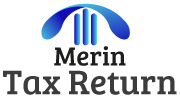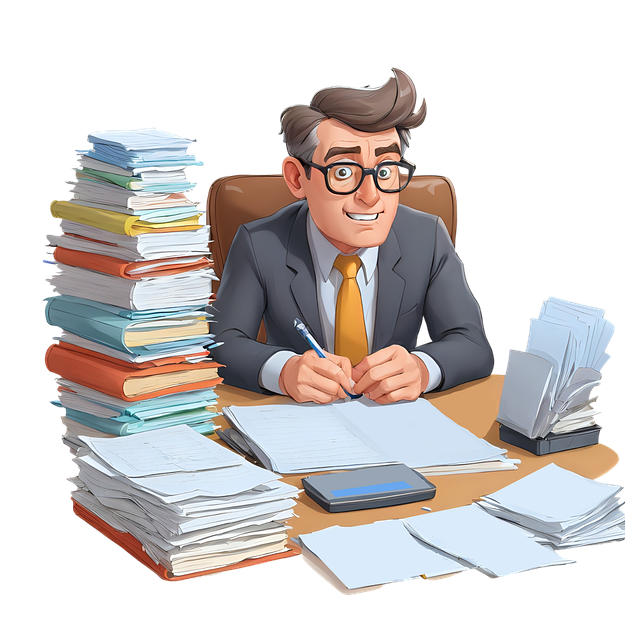Allowable Expenses for Self-Assessment Tax Returns in the UK: A Complete Guide
Filing a self-assessment tax return can feel overwhelming, especially when it comes to understanding what expenses you can claim to reduce your tax bill. Whether you’re self-employed, a freelancer, or a small business owner, knowing which expenses are allowable can save you significant money and ensure compliance with HMRC regulations.
In this guide, we’ll break down everything you need to know about allowable expenses for self-assessment tax returns in the UK. From what counts as an allowable expense to common mistakes to avoid, this blog will equip you with the knowledge to confidently complete your tax return.
What Are Allowable Expenses?
Allowable expenses are costs you incur wholly and exclusively for the purpose of running your business. These expenses can be deducted from your taxable income, reducing the amount of tax you owe. However, it’s crucial to understand that not all business-related expenses are allowable. HMRC has strict rules about what qualifies, and claiming ineligible expenses can lead to penalties.
Why Are Allowable Expenses Important?
Claiming allowable expenses is one of the most effective ways to reduce your taxable profit, which in turn lowers your tax liability. For example, if your business earns £50,000 in a year and you claim £10,000 in allowable expenses, you’ll only pay tax on £40,000. This can result in significant savings, especially for small businesses and freelancers.
HMRC’s Golden Rule: Wholly and Exclusively
The key principle behind allowable expenses is that they must be incurred “wholly and exclusively” for business purposes. This means:
- The expense must have a clear business purpose.
- If there’s any personal use, you can only claim the business portion.
For example, if you use your mobile phone for both business and personal calls, you’ll need to calculate the percentage of business use and claim only that amount.
Key Principles of Allowable Expenses
Before diving into specific categories, it’s important to understand the key principles HMRC uses to determine whether an expense is allowable:
Wholly and Exclusively
As mentioned earlier, this is the cornerstone of allowable expenses. HMRC will scrutinize expenses that could have a dual purpose (e.g., a laptop used for both work and personal activities). To avoid issues:
- Keep detailed records of how and why the expense was incurred.
- Use separate accounts or cards for business and personal expenses.
Reasonable
Expenses must be reasonable and justifiable. For instance:
- Claiming a £50,000 car for a small delivery business may raise questions.
- Opting for a mid-range vehicle that suits your business needs is more likely to be accepted.
Revenue vs. Capital
- Revenue Expenses: These are day-to-day running costs (e.g., office supplies, travel, and utilities). They are fully deductible in the year they are incurred.
- Capital Expenses: These are long-term investments (e.g., machinery, vehicles, or property improvements). They are not deductible as expenses but may qualify for capital allowances, which allow you to claim tax relief over several years.
Categories of Allowable Expenses
Here’s a detailed look at the main categories of allowable expenses for self-assessment tax returns:
Office Costs
If you work from home or have a dedicated office space, you can claim expenses such as:
- Rent, Rates, and Utilities: If you rent an office, you can claim the rent, business rates, and utility bills. For home offices, you can claim a portion of your household costs.
- Office Supplies: This includes stationery, printer ink, and other consumables.
- Postage and Printing: Costs for sending business mail or printing documents.
- Software Subscriptions: Tools like accounting software, project management platforms, or design software.
Example: Sarah runs a graphic design business from her home. She uses 20% of her living room as an office. She can claim 20% of her rent, electricity, and internet costs as allowable expenses.
Travel Costs
Travel expenses are allowable if they are solely for business purposes. This includes:
- Mileage: You can claim 45p per mile for the first 10,000 miles and 25p per mile thereafter (2023 rates).
- Public Transport: Train, bus, or taxi fares for business trips.
- Accommodation: Hotel stays during business trips.
- Meals: Reasonable meal costs during overnight business trips.
Example: John is a consultant who travels to meet clients. He drives 200 miles for a client meeting and stays overnight in a hotel. He can claim £90 for mileage (200 x 45p) and the hotel cost.
Clothing Expenses
You can claim expenses for uniforms or protective clothing required for your work. However, everyday clothing (even if worn for work) is not allowable.
Example: Emma is a chef and buys a set of chef uniforms. She can claim the cost as an allowable expense. However, if she buys a pair of black trousers for work, she cannot claim them unless they are part of a uniform.
Staff Costs
If you employ staff, you can claim expenses such as:
- Salaries and Wages: Payments to employees, including bonuses.
- Employer’s National Insurance: Contributions made on behalf of employees.
- Pension Contributions: Payments into employee pension schemes.
- Training Costs: Courses or training directly related to the business.
Example: David owns a small bakery and employs two assistants. He pays them £20,000 in salaries and £2,000 in employer’s National Insurance. Both amounts are allowable expenses.
Stock and Materials
If your business involves selling goods, you can claim the cost of:
- Raw Materials: Ingredients, components, or materials used to create products.
- Stock for Resale: Items purchased for resale.
- Direct Costs: Expenses directly related to producing goods.
Example: Lisa runs a handmade soap business. She spends £1,000 on essential oils, glycerin, and packaging. These costs are allowable expenses.
Marketing and Advertising
Expenses related to promoting your business are allowable, including:
- Website Costs: Domain fees, hosting, and website design.
- Social Media Advertising: Paid ads on platforms like Facebook or Instagram.
- Business Cards and Brochures: Printing and design costs.
- Sponsorship and Donations: If they promote your business.
Example: Tom owns a fitness studio and spends £500 on Facebook ads to promote a new class. This is an allowable expense.
Professional Fees
You can claim fees for professional services, such as:
- Accountants and Bookkeepers: Fees for preparing your tax return or managing your accounts.
- Legal Advice: Costs for business-related legal matters.
- Membership Fees: Subscriptions to professional bodies relevant to your business.
Example: Rachel is a freelance writer and pays £200 annually to join a professional writing association. This is an allowable expense.
Insurance
Business-related insurance premiums are allowable, including:
- Public Liability Insurance: Covers claims from third parties.
- Professional Indemnity Insurance: Protects against claims of negligence.
- Equipment Insurance: Covers business tools or machinery.
Example: James is a photographer and pays £300 annually to insure his camera equipment. This is an allowable expense.
Bank Charges
Fees for business bank accounts, credit card charges, and loan interest (for business purposes) are allowable.
Example: Maria pays £10 monthly for her business bank account. She can claim £120 annually as an allowable expense.
Training Costs
Training expenses are allowable if they are directly related to your business and help improve your skills or knowledge in your field.
Example: Ahmed is a web developer and takes an online course to learn a new programming language. The course fee is an allowable expense.
Subscriptions
You can claim subscriptions to trade journals, magazines, or professional organizations if they are relevant to your business.
Example: Sophie is a marketing consultant and subscribes to a marketing magazine for £50 annually. This is an allowable expense.
Capital Allowances
While not an expense, capital allowances allow you to claim tax relief on certain capital expenditures, such as:
- Equipment and Machinery: Computers, tools, or machinery.
- Vehicles: Cars or vans used for business.
- Renovations: Improvements to business premises.
Example: Paul buys a new laptop for £1,000 to use in his freelance design business. He can claim capital allowances on this purchase.
Expenses You Cannot Claim
It’s just as important to know what you can’t claim as an allowable expense. Common examples include:
- Personal Expenses: Groceries, clothing, or personal travel.
- Non-Business Travel: Commuting from home to your regular workplace.
- Entertainment Costs: Client lunches or corporate hospitality.
- Fines and Penalties: Parking tickets or late payment fees.
Example: If you buy a suit for work meetings, you cannot claim it as an expense unless it’s a uniform.
How to Record and Claim Allowable Expenses
To ensure compliance and maximize your claims, follow these steps:
- Keep Accurate Records: Maintain receipts, invoices, and bank statements as proof of your expenses.
- Use Accounting Software: Tools like QuickBooks, Xero, or FreeAgent can help you track and categorize expenses.
- Separate Personal and Business Finances: Use a dedicated business bank account to avoid mixing personal and business expenses.
- Submit Your Tax Return on Time: The deadline for online self-assessment tax returns is January 31st each year.
Common Mistakes to Avoid
- Claiming Personal Expenses: Always ensure expenses are wholly and exclusively for business purposes.
- Inaccurate Records: Poor record-keeping can lead to missed claims or HMRC investigations.
- Overlooking Small Expenses: Even small expenses can add up, so don’t forget to claim them.
Conclusion
Understanding allowable expenses is a crucial part of managing your self-assessment tax return. By claiming all eligible expenses, you can reduce your taxable income and keep more of your hard-earned money. However, it’s essential to stay within HMRC’s guidelines and maintain accurate records to avoid penalties.
If you’re unsure about any aspect of your tax return, consider consulting a qualified accountant or tax advisor. They can help you navigate the complexities of self-assessment and ensure you’re making the most of your allowable expenses.

